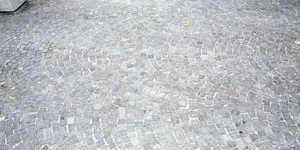What Makes This Word Tick
Ah, "cybersquatting" — it's got a ring to it, doesn't it? This tech-era term has nothing to do with squats at the gym but rather a sneaky tactic in the digital domain where individuals register domain names tied to established brands with the intention to sell for a profit. It's like claiming the best seats in a theater before anyone else realizes how good the show will be.
If Cybersquatting Were a Person…
Picture a person eagerly lurking near a prime real estate spot. They're savvy, always looking for a chance to flip a property for a tidy sum. Charmingly opportunistic, perhaps, but they're not always the most popular at the community meetings.
How This Word Has Changed Over Time
Initially coined in the late 1990s, "cybersquatting" quickly became a buzzword as the internet commercialization rushed forward. It's evolved as laws have been established to combat this web-based land-grabbing, but the core idea has stayed the same: taking virtual names hostage.
Old Sayings and Proverbs That Use Cybersquatting
While you won't find "cybersquatting" in your grandmother's book of proverbs, the essence of "staking a claim" or "sitting on something valuable" certainly resonates with this term.
Surprising Facts About Cybersquatting
Did you know some of the earliest instances of cybersquatting involved celebrities and major corporations not snagging their .com addresses fast enough? Also, the legal battles over these domains can be worth millions, fueling an underground market for web names.
Out and About With This Word
In the digital world, cybersquatting pops up in legal proceedings and tech news alike. It's the dark horse in discussions about intellectual property, ensuring it keeps its spot in cybersecurity circles.
Pop Culture Moments Where Cybersquatting Was Used
Though it hasn’t starred in a blockbuster (yet), cybersquatting has been often referenced in tech-centered dramas and thrillers, underlying plots of corporate intrigue and cyber authenticity crises.
The Word in Literature
Cybersquatting would be right at home in sci-fi novels exploring the wild frontiers of the internet. Think of the word peppered through narratives about cyberspace pioneers and virtual wild west dramas.
Moments in History with Cybersquatting
The term gained notoriety during the dot-com bubble when domains became digital gold, and a few entrepreneurial souls capitalized on this oversight from big companies. Its history embodies a modern twist on homesteading values — but in a slightly more questionable form.
This Word Around the World
Cybersquatting is universally recognized thanks to the global nature of the internet. Though the exact term might not translate on a one-to-one basis, digital jurisdiction tussles are a worldwide concern, highlighting the blend of local laws and internet lawlessness.
Where Does It Come From?
A mash-up of "cyber," relating to the internet and computers, and "squatting," derived from occupying unclaimed property. The word conjures up images of an age-old practice brought into the digital age with a bit of cheekiness.
How People Misuse This Word
Sometimes people use "cybersquatting" to describe any acquisition of domain names, but true cybersquatting involves an intent to profit misleadingly off someone else's established name or trademark.
Words It’s Often Confused With
Domain Parking: A legitimate strategy of holding domain names for future projects.
Phishing: More nefarious than cybersquatting, involving tricking individuals into sharing personal information.
Typosquatting: A related but different form of cybersquatting that exploits mistyped domain names.
Additional Synonyms and Antonyms
Synonyms might include "domain hijacking" or "web name speculating," while antonyms could be "trademark ownership" or "official domain registration."
Want to Try It Out in a Sentence?
After discovering his company name was cybersquatted, Tom decided to consult a lawyer before launching his online business.
















